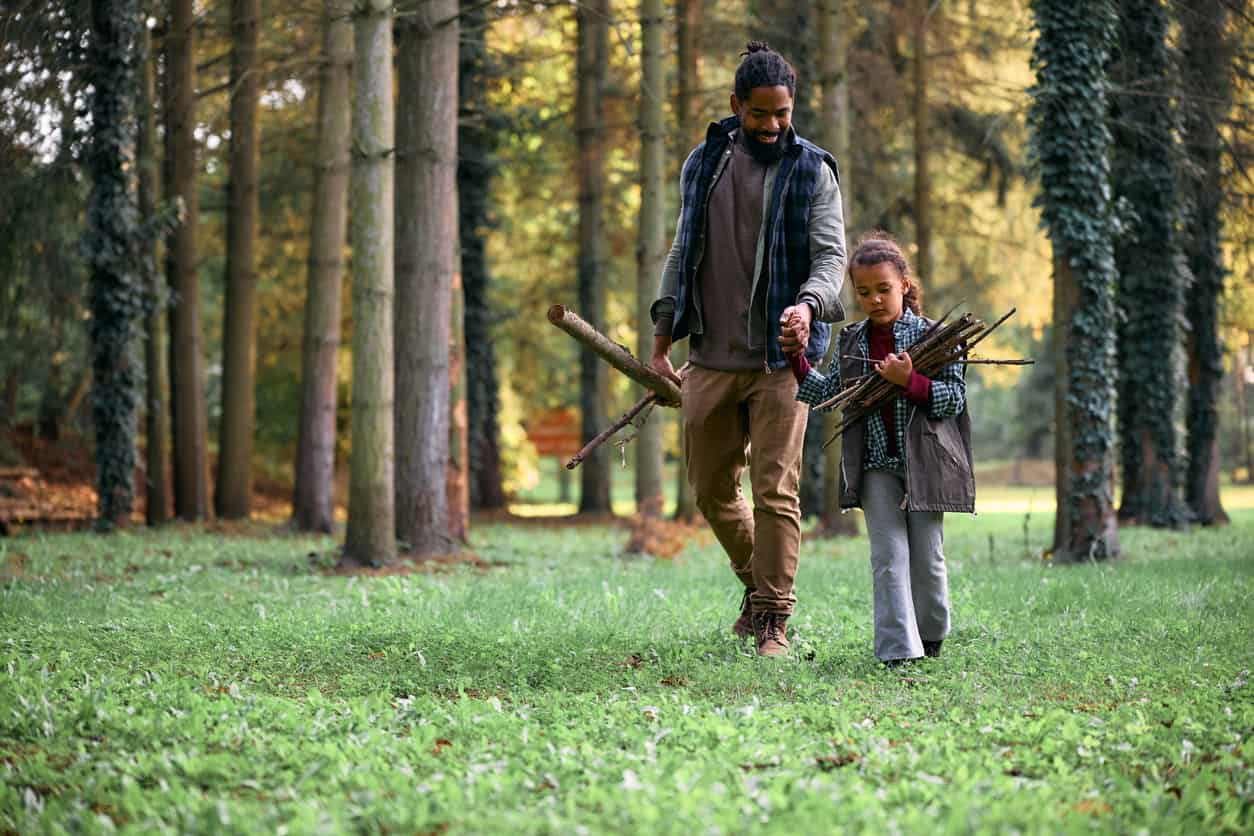Camping is a wonderful way to connect with nature and enjoy the outdoors. However, to ensure everyone has a positive experience, it’s crucial to follow proper camping etiquette. Here are the key points to remember:
Respect Quiet Hours and Noise Levels
- Observe posted quiet hours, typically from 10 p.m. to 6 a.m.
- Keep voices low and music at a reasonable volume
- Use headphones if you want to listen to music
- Be mindful of generator use, especially near tent campers
Respecting quiet hours is crucial for maintaining a peaceful camping environment. Many people camp to escape the noise of daily life and enjoy the sounds of nature. By keeping your noise levels down, especially during designated quiet hours, you ensure that everyone can enjoy a restful night’s sleep.
If you need to use a generator, be considerate of its placement and timing, particularly if you’re near tent campers who don’t have the sound insulation of an RV. Remember, sound carries further in the open air, so what seems like a reasonable volume to you might be disruptive to others.
Respect Others’ Space and Privacy
- Don’t cut through other campsites
- Keep your belongings within your designated area
- Ask permission before entering someone else’s campsite
Respecting the space and privacy of fellow campers is a fundamental aspect of camping etiquette. Each campsite, whether it’s a designated spot in a campground or a dispersed camping area, is essentially someone’s temporary home. Cutting through other campsites can be intrusive and potentially dangerous, especially in low-light conditions.
Keep your gear and activities within your own area to avoid encroaching on others’ spaces. If you need to enter another campsite for any reason, always ask permission first. This mutual respect helps maintain a harmonious camping community.
Practice Leave No Trace Principles
- Pack out all trash, including food scraps
- Use established fire rings or camp stoves
- Dispose of human waste properly (200 feet from water sources, 6-8 inches deep)
- Leave natural objects and cultural artifacts undisturbed
Leave No Trace principles are essential for preserving the natural environment and ensuring that future generations can enjoy the same unspoiled wilderness. Packing out all trash, including seemingly biodegradable items like food scraps, prevents wildlife from becoming habituated to human food. Using established fire rings or camp stoves minimizes the impact on the landscape.
To further minimize your impact on the environment, check out our tips for eco-friendly camping.
Proper disposal of human waste is crucial for preventing contamination of water sources and maintaining a healthy ecosystem. Leaving natural objects and artifacts in place preserves the area’s natural and cultural integrity. By following these principles, we can all contribute to the long-term preservation of our natural spaces.
For more detailed information on proper waste management, check out our guide on managing waste while camping.

Manage Your Campfire Responsibly
- Follow local fire regulations and bans
- Keep fires small and under control
- Fully extinguish fires before leaving or going to sleep
- Use local firewood to prevent spreading invasive species
Responsible campfire management is crucial for both safety and environmental preservation. Always check and follow local fire regulations, as conditions can change rapidly, especially in dry areas prone to wildfires. Keep your fires small and contained within designated fire rings or pits. A smaller fire is easier to control and uses less wood.
When extinguishing your fire, ensure it’s completely out – douse it with water, stir the ashes, and repeat until it’s cold to the touch. Using local firewood prevents the spread of invasive insects or diseases that could harm the local ecosystem. Remember, a well-managed campfire enhances the camping experience without putting the environment at risk.
Be a Responsible Pet Owner
- Keep pets on a leash and under control
- Clean up after your pets promptly
- Don’t leave pets unattended or allow excessive barking
Being a responsible pet owner while camping is essential for the comfort and safety of both your pet and fellow campers. Keeping your pet leashed and under control prevents unwanted interactions with wildlife or other campers who may not be comfortable around animals. Promptly cleaning up after your pet maintains a clean and hygienic campsite environment.
Avoid leaving pets unattended, as they may become distressed in an unfamiliar environment or potentially disruptive to others. If your pet tends to bark excessively, consider strategies to keep them calm or choose a more isolated camping spot. Remember, not everyone may be as fond of your pet as you are, so being considerate ensures a positive experience for all campers.
For more tips on camping with pets and respecting wildlife, visit our article on camping with dogs and understanding wildlife.
Respect Wildlife and the Environment
- Store food properly to avoid attracting animals
- Don’t feed wildlife
- Stay on designated trails to minimize impact
Respecting wildlife and the environment is crucial for preserving the natural balance of the ecosystems we enjoy while camping. Proper food storage, such as using bear-resistant containers or hanging food bags, prevents wildlife from associating humans with food sources. This protects both animals and campers. Feeding wildlife, even with good intentions, can lead to dependency and altered natural behaviors.
Staying on designated trails helps prevent erosion and protects sensitive vegetation. Remember, we are visitors in these natural habitats, and it’s our responsibility to minimize our impact and preserve these areas for future generations.
Be Mindful of Lighting
- Use minimal lighting at night to preserve the natural darkness
- Point lights downward and shield them to avoid disturbing neighbors
Being mindful of lighting is an often overlooked aspect of camping etiquette. Excessive artificial light can disrupt the natural cycles of nocturnal wildlife and diminish the stargazing experience for fellow campers. Use only the lighting you need for safety and basic tasks.
When using lights, point them downward and consider using red filters, which are less disruptive to night vision. Shielding your lights not only prevents disturbing neighbors but also helps preserve the natural ambiance of the camping experience. Remember, one of the joys of camping is experiencing the natural darkness and starry skies that are often obscured in urban environments.
Practice Good Hygiene
- Use designated facilities for washing dishes
- Dispose of grey water properly, away from water sources
- Keep personal hygiene activities away from shared spaces
Maintaining good hygiene while camping is essential for both personal health and environmental preservation. Use designated facilities for washing dishes to prevent contamination of natural water sources. When such facilities aren’t available, wash dishes at least 200 feet away from water sources and use biodegradable soap.
Dispose of grey water (used for washing) by scattering it broadly away from campsites and water sources. For personal hygiene, use the same 200-foot rule from water sources and campsites. These practices help maintain the cleanliness of shared spaces and protect water sources from contamination.
Follow Campground Rules
- Adhere to check-in and check-out times
- Observe maximum occupancy limits for your site
- Use amenities considerately, without monopolizing them
Following campground rules is crucial for maintaining order and ensuring a positive experience for all campers. Adhering to check-in and check-out times allows campground staff to properly prepare sites for incoming campers. Observing occupancy limits prevents overcrowding and excessive impact on campsite facilities.
When using shared amenities like showers or laundry facilities, be considerate of others waiting to use them. These rules are designed to ensure fair use of resources and maintain the quality of the camping experience for everyone. Remember, a well-run campground depends on the cooperation of all its visitors.
Be Friendly and Considerate
- Greet your camping neighbors
- Offer help if someone seems to be struggling
- Be willing to compromise if conflicts arise
Being friendly and considerate goes a long way in creating a positive camping atmosphere. A simple greeting to your camping neighbors can set a friendly tone and open lines of communication. If you notice someone struggling with setting up camp or other tasks, offering help can be a great way to build community.
In case of conflicts, approach the situation with a willingness to compromise and find solutions that work for everyone. Remember, everyone is there to enjoy nature, and a little kindness can significantly enhance the camping experience for all. This friendly attitude also makes it easier to address any issues that might arise during your stay.
Conclusion
By following these etiquette guidelines, you’ll contribute to a positive camping experience for everyone. Remember, the goal is to enjoy nature while respecting others and the environment.
For those new to camping, our beginner’s guide to types of camping can help you choose the right camping style and understand the etiquette specific to each type.

Leave a Reply